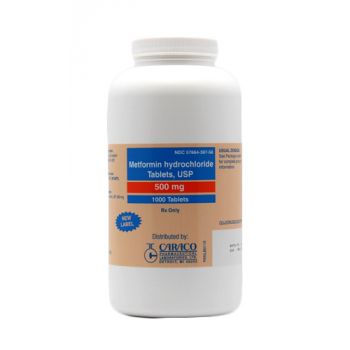In stock
Metformin Treatment Lab Panel LabCorp
SKU
462-l
This panel is to evaluate a patient’s suitability for Metformin, a medication used to help treat Type II Diabetes and control blood sugar.

This panel checks how well your body is responding to Metformin, a common medication for diabetes. It looks at blood sugar levels, kidney function, and sometimes vitamin B12 levels, since Metformin can affect these measurements.
| Service of Interest | Weight Management |
|---|---|
| What is Included |
|
| Why To Buy | This Metformin Treatment Lab Panel checks your blood sugar levels, kidney function, and vitamin B12 levels, which can be affected by Metformin, to help identify the cause of your symptoms. Finding the cause(s) of:
|
| Symptoms | Blurred vision, Fatigue, Frequent urination, Increased thirst, Slow-healing sores, Unexplained weight loss |
We found other products you might like!







